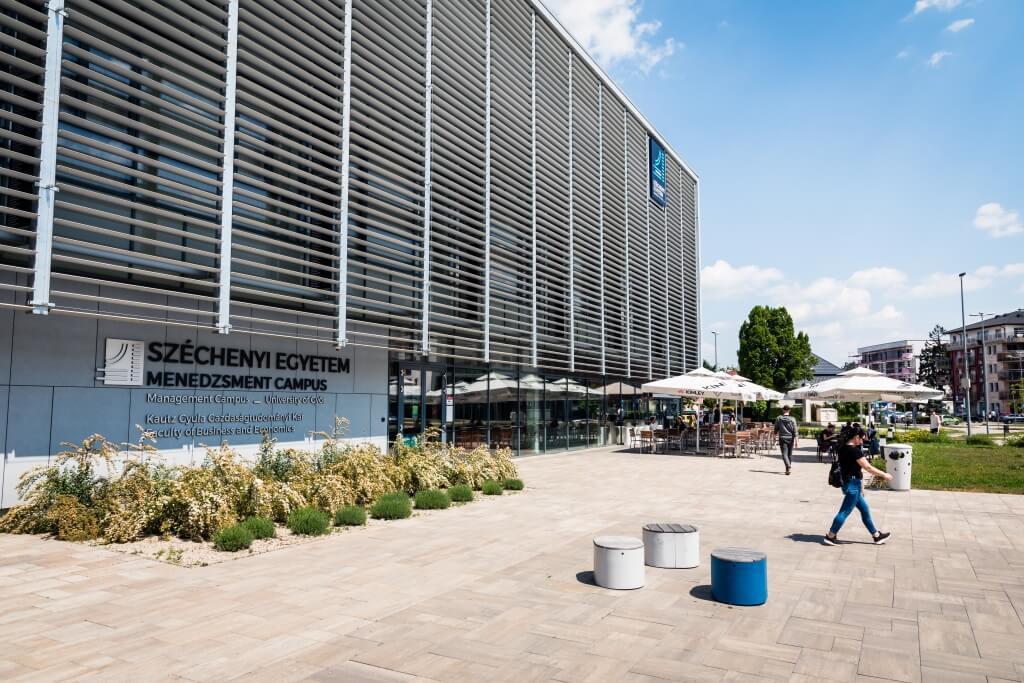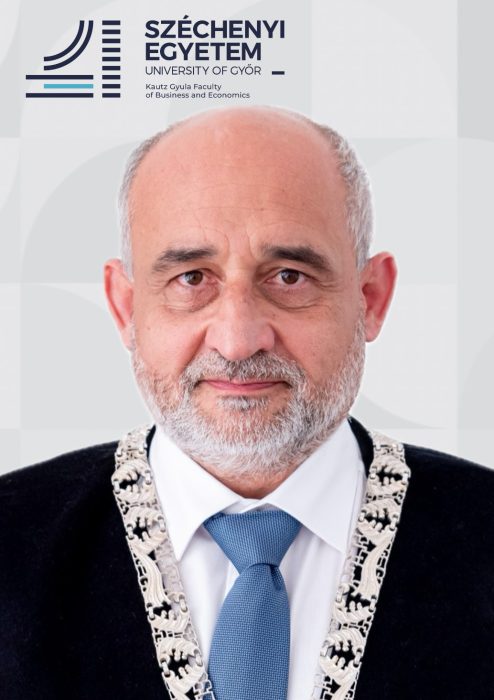
At Széchenyi István University, the history of economic education began in 1990 with the establishment of the Business Administration program. In 1992, the training of economists commenced at the college level in the field of business management. Initially, the programs were overseen by the Institute of Economics, which was succeeded by the Faculty of Economics in 1993.
The development of the content and organizational framework of the business management economist training started under the leadership of Professor József Kupcsik. From 1996, Professor József Veress developed the university-level economics education program, which led to the launch of the first university-level business management supplementary program on September 1, 1998. From the autumn of 2001, this program was also offered in full-time education.
On January 1, 2002, Széchenyi István College was granted university status, leading to the establishment of two faculties: the Faculty of Engineering Sciences and the Faculty of Law and Economics. Dr. János Rechnitzer became the dean of the faculty. Under his leadership, several bachelor’s and master’s programmes were accredited, the Doctoral School was established, and the faculty gained independence.
In 2004, a multidisciplinary social science doctoral programme was launched alongside the faculty under the title “Economy, Law, Regionality, and Society in Integrating Central Europe.” From 2008, this programme continued as the Doctoral School of Regional and Economic Sciences. In addition to Hungarian-language education, English-language teaching began in 2016 as part of the SZEEDSM program.
In 2008, the faculty launched three master’s programmes, followed by two more in 2009 and 2010, offered in both full-time and part-time formats. From 2010, the Marketing programme also became available in English.
On January 1, 2007, the Faculty of Law and Economics was split into two separate faculties.

Under the leadership of Professor László Józsa, between 2009 and 2013, several postgraduate and higher-level vocational programs were introduced, significantly increasing both student and faculty numbers. Thanks to the success of the Doctoral School, several instructors earned doctoral degrees, improving faculty indicators and elevating the faculty’s position in national rankings.
Additionally, faculty conference series continued, and instructors participated in international conferences, fostering international relations and gaining insight into the latest research trends.
During this period, the organizational structure of the faculty was reorganized, and numerous new researchers and lecturers, both early-career and experienced professionals, joined, positively impacting the faculty’s scientific and educational standards.
Between 2013 and 2022, Dr. Ilona Papp served as dean. During her tenure, all programs were successfully accredited, and new programs were introduced, including the MBA course in cooperation with Audi Hungaria Zrt. The student population stabilized at a high level, making the faculty the second-largest at the university. Not only did the number of English-language programs grow, but the faculty also became the flagship of English-language education. During this period, corporate partnerships steadily increased, and the faculty relocated to its new home, the Management Campus building.
From 2022, Dr. László Csicsmann led the faculty. During this time, the AACSB (Association to Advance Collegiate Schools of Business) accreditation process accelerated, and the Business Administration and Management BSc program received ACCA (Association of Chartered Certified Accountants) accreditation.


From September 2023, Sándor Remsei PhD will hold the position of dean at the Gyula Kautz Faculty of Economics.
The 2024 academic year saw the launch of the English-language International Business Economics bachelor’s program and the double degree program in International Economics and Business and Tourism Management master’s programmes.
In 2024, a comprehensive renewal of the faculty’s educational portfolio began. As a first result of this, from 2025, bachelor’s programmes will accept students based on a new curriculum.
From 2024, the Faculty’s international conference, the Kautz Conference on Business and Economics, will be held with a new concept, shifting its focus to international academic networking and global visibility.
In order to deepen scientific and research relations, the Faculty has initiated cooperation with several renowned international journals, as a result of which a number of lecturers have been appointed to editorial boards, thus strengthening international scientific integration.
In 2025, the Faculty entered into several significant professional and institutional collaborations that provide practice-oriented learning opportunities for students. A milestone is the dual training agreement with Audi Hungaria Zrt., which further strengthens the Faculty’s industrial network.
In 2025, the Kautz Faculty joined the AACSB organization, and the accreditation process officially began.